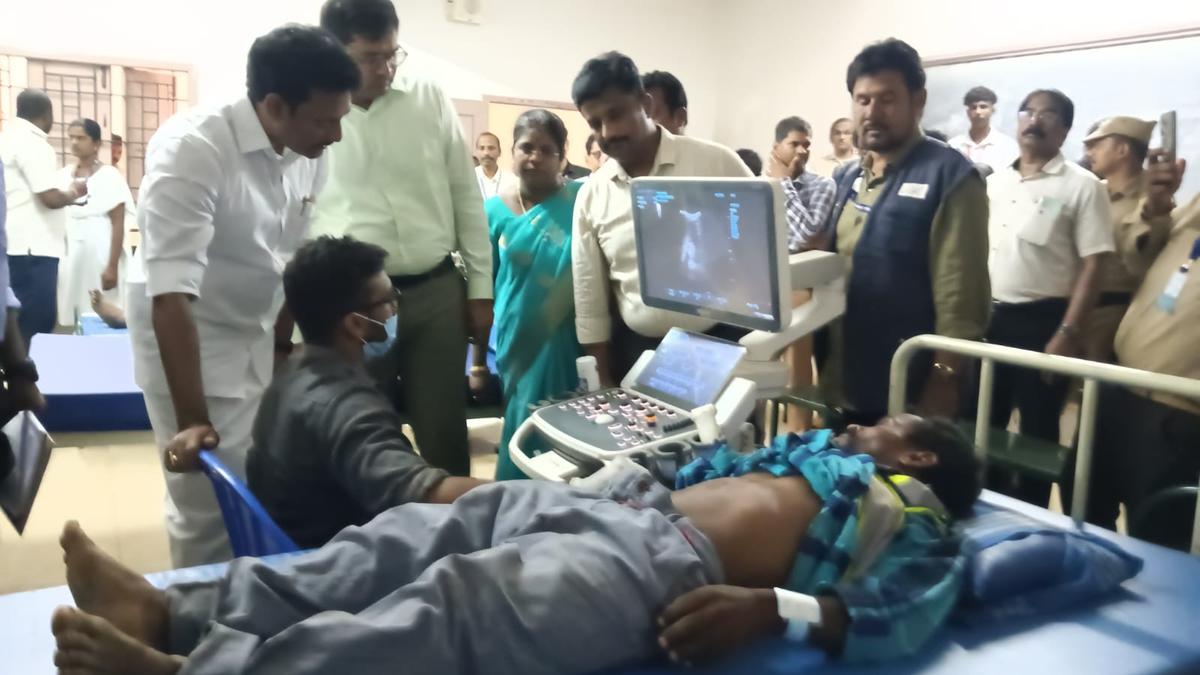Now Reading: Stalin’s ‘Nalam Kaakkum’ Camps in Tiruchi Aid 4,500 Residents
-
01
Stalin’s ‘Nalam Kaakkum’ Camps in Tiruchi Aid 4,500 Residents
Stalin’s ‘Nalam Kaakkum’ Camps in Tiruchi Aid 4,500 Residents

Swift Summary
- The Nalam Kaakkum Stalin health camps in Tiruchi have received positive public response, offering free medical check-ups and treatments.
- Services provided include general screenings, specialist consultations, diagnostic tests, free medicines, ECHO scans for pregnant women, and disability certifications.
- Two health camps were conducted so far:
– August 2 at Thillainagar: 2,088 attendees; 558 screened for disabilities; 94 received welfare benefits; identity cards issued under CMCHIS.
– August 9 at Kattur: 2,426 attendees (976 men & 1,450 women); vitals recorded for ~1,000; ECGs conducted on ~896; diagnostic samples collected from ~942 individuals.
– Special focus on expectant mothers with high-risk pregnancies identified and monitored.
– Cataract cases referred for surgery by hospitals.
- Welfare cards distributed under Labor Welfare & Skill Progress and Adi Dravidar/Tribal Welfare departments.
Indian Opinion Analysis
The Nalam Kaakkum Stalin initiative demonstrates a promising effort to address healthcare accessibility in underserved regions of Tamil nadu. By conducting ECHO scans locally and identifying high-risk pregnancies close to delivery dates – services otherwise only accessible at distant major hospitals – the program has considerably reduced logistical barriers for critical patient groups like expectant mothers. Similarly impactful is the focus on disabilities through certifications tied directly to welfare benefits distribution.
However, while such schemes ensure broad reach with numbers reflecting meaningful engagement (4,514 individuals served across two camps), sustained monitoring of addressed conditions is crucial to ensure long-term health impact rather than just momentary intervention. Additionally notable is the integration of multiple departments like Labour Welfare into healthcare outreach-an approach that could serve as a model elsewhere in India.
In summary: Thes camps effectively provide immediate care while addressing systemic inequities but require ongoing follow-up mechanisms to further strengthen public health outcomes.
Read more: The Hindu























